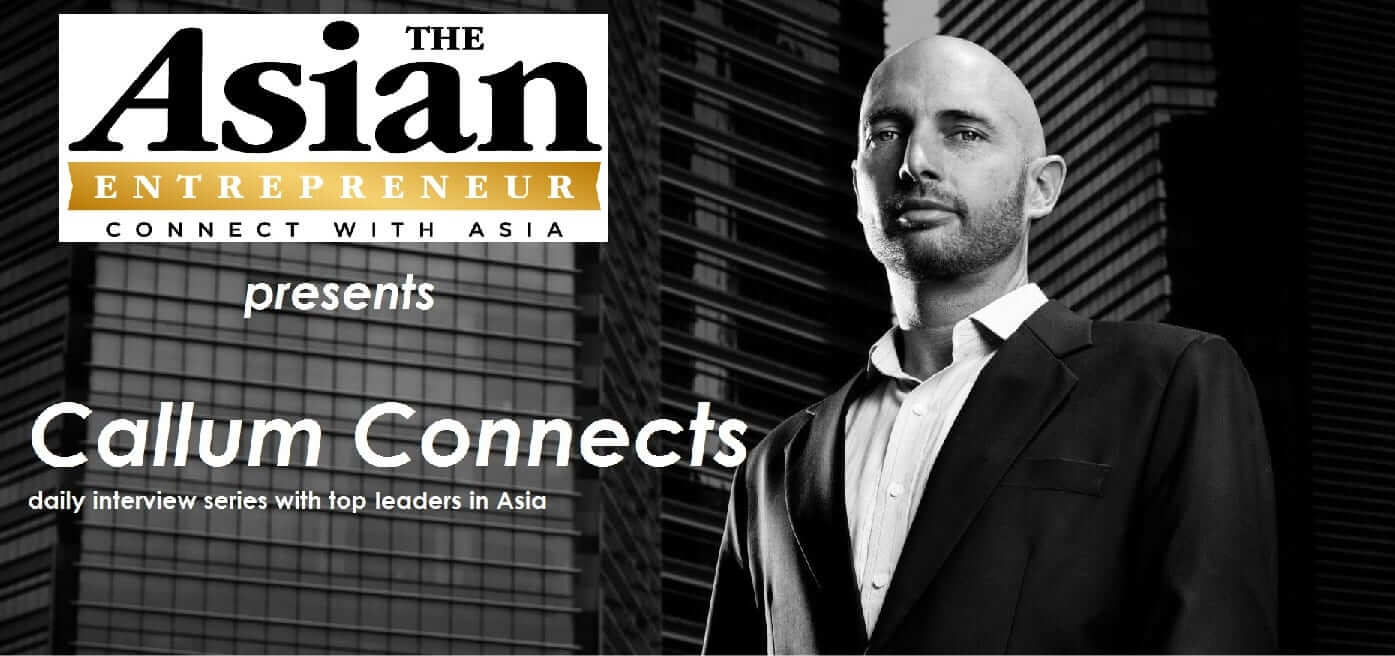Callum Laing has started, built, bought and sold businesses ranging from recruitment companies to restaurants and from seminars to sports events.
Originally from New Zealand, he grew up in the UK and has spent the past 13 years in Asia.
Today he is based in Singapore with his young family and combines his time helping ‘up and coming’ businesses launch in Asia whilst also working with established multi-national’s to effectively connect them with the increasing number of small businesses that are setting up in the region. He continues to be a hands on director in his business Fitness-Buffet which is currently expanding into its twelfth country.
A regular writer for top entrepreneurial blogs like TheNextWeb and TechinAsia, Callum also guides small business owners through the “Key Person of Influence” 40 week incubation program, he is a Mentor / Advisor for DBS BusinessClass and was recently awarded Asia Brands ‘Outstanding Leadership’ award for his work in the fitness industry.
On top of all of that, he will be starting a daily column ‘Callum Connects’ here on AsianEntrepreneur.org to feature some of the amazing people he regularly comes into contact with and who are making stuff happen in Asia.
By bribing him with cold beer, we were able to sit down with Callum and find out a little bit more about what he’s doing and how he fits it all in.
You are involved in a lot of projects, how do you manage your time?
The bulk of my time right now is pretty much focused on the “Key Person of Influence” program. This is a business that a good friend of mine in the UK, Daniel Priestley set up and has grown around the world based on his best selling book of the same name. It helps small business owners and executives to raise their profile and their value in their industry. I thought it was an interesting business and was only too happy to help him launch it in Asia when he asked. What I hadn’t expected was how much I keep learning from the process and from the amazing clients we have on the program.
Overall though, I try and make sure things are systamised and that I have great teams around me either in the office or virtually. I have got much better as I get older at ensuring that I schedule in plenty of uninterrupted time for me whether that is for creative work or sport or even sleep. It takes priority and I try hard not to let it get interrupted by the never ending stream of ‘busy’ work.
What has been your biggest learning from Key Person of Influence (KPI)?
KPI is centered around helping business owners to capitalise on their Intellectual Property, to build their influence and then to leverage technology to become ‘global small businesses’. There is a 5 step framework which involves Pitching, Publishing, Productising, Profile and Partnerships.
I think one of the things that continues to amaze me about the program is best summed up in one of our maxims. “Environment dictates performance”. Most small business owners are out there trying to figure this stuff out themselves. But when you can bring people together and put them in a high performance environment where they just have to knuckle down and get the results it is absolutely mind blowing what they can, and do, achieve on a daily basis.
Is there any connection between all the businesses you have been involved in. It seems a pretty disparate mix?
I think it was Steve Jobs that said you can only ever connect the dots looking backwards and it is interesting that only recently I have started to see a pattern. At the time I have jumped into businesses or industries primarily because I thought it would be fun and that I could add some value or at least offer some kind of unique insight (probably what others would call a naive insight!).
It’s only recently that I’ve realised that all the businesses have fallen into one of three categories. Information, Connections or Entertainment. Why that is interesting to me is that one of my early businesses was around building businesses networks. One of our philosophies is that if you wanted to build a significant network you had to create value for your network in one or more of those three areas.
Today I still use that model when I work with multi-national clients who are looking at ways to engage with their customers and prospects.
Which one do you feel you create the most value in?
Connections definitely. It’s odd, I don’t consider myself a good ‘networker’ in the conventional sense of going to networking events etc. but by virtue of the industries I’ve been involved in over the years I have met some really cool people and it is just easy for me to connect people. Whilst someone might hire my company to consult or to launch a new product or business, more often than not what they are really investing in is my ability to connect them to the right people.
How have you dealt with failures and setbacks in your journey?
I haven’t. Everything works perfectly. All of the time…
I can give the standard answer about failure just being feedback and all that good stuff but the reality is that failure is tough and I probably haven’t dealt with it well at all. I’ve been hit by the dot com bubble bursting in 2000 and then GFC in 2009. Those are the failures it’s easy to talk about because everyone understands. Then there are the hundreds of failures that I can’t blame on market forces and have to take full responsibility for. I’ve sold businesses at the wrong time. Laid off staff that shouldn’t have been laid off, held on to other staff that should have gone. Deals that have fallen through, friendships that have suffered etc. etc.
I tend to comfort myself by reading the biographies of people I admire. You look at someone like Branson, Clinton or Churchill and realise that what you are currently obsessing about is really nothing in the scheme of things – although it never feels like that at the time!
“Success is not final, failure is not fatal: it is the courage to continue that counts” – Churchill.
Why did you become an entrepreneur?
No one would give me a job. And I thought if I became good at it then one day I would get to do an interview with AsianEntrepreneur over a cold beer!
Really, I was always running little side businesses at school. Making jewellery, ice cream, cleaning cars. Basically anything to make some extra cash. I guess I’ve never grown out of that.
What advice would you give to people thinking about becoming an entrepreneur?
Honestly, I’m not a huge fan. I think people have confused being an entrepreneur with having creative control. The current media obsession with entrepreneurs as the new rock stars encourages people to jump into entrepreneurship who perhaps shouldn’t.
I think creative control is great and you should certainly endeavour to get more of it in your career but I actually believe that for many people they will have far more creative control working for someone else then they would if they are trying to take on all the insane responsibilities of being a business owner.
As happy as I am with where I am right now, the reality is that I could have a much bigger impact on the world if I worked for a company with the resources of Google for example.
When I started interviewing people for the ‘Callum Connects’ series on AsianEntrepreneur.org it was important to me that it be about ‘Leaders’ not ‘Entrepreneurs’. There are many very very cool things happening by people who have carved out great careers and are leveraging the resources of the companies they work with to do amazing things.
Who are the people you will be featuring in ‘Callum Connects’?
It is a bit of an eclectic mix and it really is people I’ve met that I think are doing cool stuff and people that they recommend to me.
It’s easy to focus on the handful of amazing leaders in Asia that have had great success and already get plenty of media, but we have an amazing eco-system of individuals that are doing interesting and meaningful projects and I wanted to shine a light on some of them.
My hope, of course, is that your readers will see value in what they are doing and want to connect with them.
Any parting words of wisdom for entrepreneurs out there?
Business is a team sport. Invest your time in bringing together great team, partners, mentors and anyone else that can benefit from your success.
And try and do some exercise daily. It’s the best thing I know to keep you relatively sane…





























